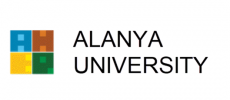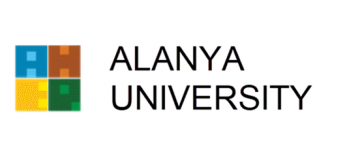COURSE CONTENTS
GDA 101 INTRODUCTION TO FOOD TECHNOLOGY
Definition and scope of food science and technology, historical development and significance of the food industry, food components (water, carbohydrates, proteins, fats, vitamins, and minerals) and their impact on processing, concepts of food safety and hygiene, basic food processing and preservation methods (thermal treatments, drying, cooling, freezing, fermentation), food additives, the importance of quality control, and an introduction to the Turkish Food Codex and international standards.
GDA 103 GENERAL CHEMISTRY
Structure of atoms and molecules, periodic table and elements, chemical bonding, solutions and concentration concepts, acid-base equilibrium, chemical reactions, fundamental analytical chemistry methods, and applications related to food science.
GDA 105 PRINCIPLES OF NUTRITION
Macro and micronutrients, energy metabolism, digestion and utilization of nutrients in the body, principles of healthy nutrition, food groups and dietary guidelines, special nutritional requirements, and current trends in nutrition.
GDA 102 BASIC ANALYTICAL TECHNIQUES
Sample preparation methods, titration, gravimetric and spectrophotometric analyses, fundamental measurement techniques in quality control laboratories, data analysis and reporting, and laboratory safety and procedures.
GDA 104 FOOD CHEMISTRY
Chemical structure and functions of food components, including proteins, carbohydrates, lipids, vitamins, and minerals, food reactions and spoilage processes, and interactions with food additives.
GDA 106 HYGIENE AND SANITATION
Fundamental principles of food hygiene and sanitation, microbial contamination, cleaning and disinfection methods, HACCP and good hygiene practices, and hygiene management in food processing facilities.
GDA 100 INTERNSHIP
Mandatory practical training providing industry experience, workplace applications in food production facilities, laboratories, or service sector organizations, observation of processes, quality control practices, and reporting experience.
GDA 201 FOOD QUALITY CONTROL METHODS
Concept and importance of quality control, quality measurement techniques, sensory and objective quality evaluation, food safety criteria, standardization and quality management principles, with applications in production and laboratory settings.
GDA 203 FOOD MICROBIOLOGY
Role of microorganisms in foods, foodborne pathogens, microbial spoilage and contamination, sterilization and pasteurization methods, microbiological analysis techniques, and safety precautions.
GDA 205 FOOD ADDITIVES AND RESIDUES
Definition and classification of food additives, purposes of use, maximum limits, regulatory requirements, pesticide and veterinary drug residues, and analytical and monitoring methods.
GDA 202 INSTRUMENTAL ANALYSIS TECHNIQUES
Spectroscopy, chromatography, titrimetric and electrochemical methods, sample preparation and measurement techniques, data analysis and interpretation, and laboratory applications.
GDA 204 FOOD LEGISLATION AND STANDARDS
Turkish Food Codex and related regulations, international standards (Codex, ISO, HACCP), labeling and product safety, regulatory inspection processes, and applied examples.
GDA 206 QUALITY MANAGEMENT SYSTEMS
Quality management systems such as ISO 9001, ISO 22000, and HACCP, quality assurance processes, internal and external auditing, documentation and compliance with standards, and continuous improvement methods.
GDA 208 RESEARCH METHODS AND TECHNIQUES
Scientific research methodologies, experimental design, data collection and analysis techniques, statistical evaluation, reporting and presentation skills, and literature review and reference utilization.

